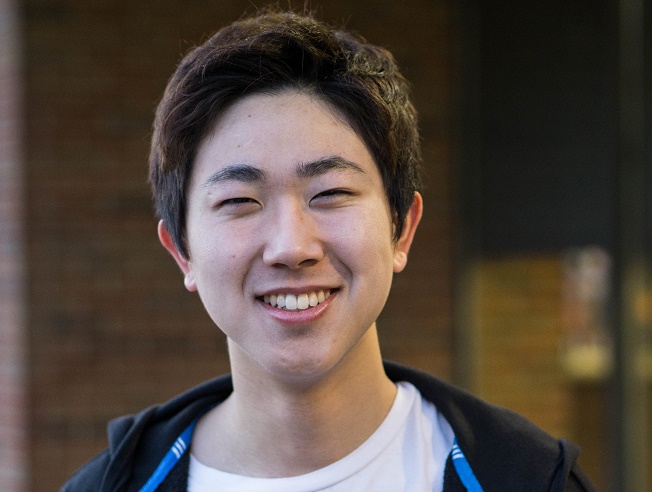In a multicultural world, ideas about sex, romance, sexuality, and gender can vary widely between countries. These two students share their experiences in Bonn, Germany and Seoul, Korea.
Avery Mukherjee
Avery Mukherjee, a first year social work and public administration major, lived in Bonn, Germany for two years when she was 12-14 years old. Her family still resides there, and she goes back to visit occasionally. Bonn is an urban area of Germany with over 300,000 inhabitants.
Because of its urban populace, Bonn is generally friendly to the LGBT+ community and fetish communities. Sex shops are prevalent in the city, and, often, these sex shops are marketed toward LGBT+ people. The visibility of sex shops sometimes helps with sex education, as parents are forced to have a discussion with their children about what sex shops are and what the LGBT+ community is.
Pop culture is also used to educate civilians about sex, with popular images and figures being used in public sex education advertisements. Despite this seemingly open attitude in advertisement, Mukherjee says that her sex education at school was very limited and heteronormative. The word heteronormative is an adjective asserting that heterosexual behavior is the norm and the preferred sexuality.
“I would say that [sex education] is comparable to America,” Mukherjee said.
Sex education may be comparable to America, but Mukherjee sees a difference in the way Germans and Americans talk about masturbation. In Germany, it’s more acceptable for both women and men to talk about masturbation.
“I think the decreased stigma around masturbation results from the rise of the single woman without children,” Mukherjee said.
Masturbation is generally more okay to talk about, but straight men using sex toys still carries an inescapable stigma.
Although people are more liberal when discussing masturbation, the transgender community is often underrepresented in the public sphere in Germany. Drag queens are popular and visible as entertainment icons, but, when issues of healthcare and civil rights come up, people are often less interested. Mukherjee, who identifies as gender neutral, often feels excluded in the LGBT+ community in Germany.
Gender neutral is a gender in which the person feels like a mixture of both male and female, or the person completely rejects conventional gender categories.
“People of color are ignored also,” Mukherjee said. “Gay white men often take the spotlight in the LGBT community.”
Germany may still struggle with inclusion in the LGBT+ community, but Mukherjee notices a marked improvement in the treatment of rape and assault victims as compared to America. Mukherjee sees the biggest improvement in the way police departments treat victims of sexual crime.
“The younger generation is more liberal in talking about this stuff,” Mukherjee said. “And that’s really where we’re starting to see improvement.”
Jun Sik Choi
Choi, a first year music technology major, was born and raised in Seoul, Korea. Seoul is the capital and largest city in Korea. He came to America before his sophomore year of high school and stayed with family members. He sometimes goes home to Seoul to visit family, and he recently went to see them over winter break. Although he loves America, Choi prefers Korea.
Different cultures have different beauty ideals, and Korea has slightly different ideas about beautiful men and women. According to Choi, the ideal woman is pale and skinny, with long legs, big eyes, and a high (American) nose.
“It’s beautiful for a woman to have some curves,” Choi said. “But definitely not a butt as large as Nicki Minaj’s.”
The standards for men are a little different. Choi says that younger women look for a specific male archetype: slim, lanky, and pale, with pretty boy features. But, as women get older, the male ideal of beauty changes, and muscular, tanned men become the standard.
Tattoos and body modifications are slowly becoming more commonplace in America, but Korea still holds a more conservative attitude. Choi attributes this conservative attitude to the Buddhist sentiment still prevalent in the east. Even though Choi lives in an urban area, tattoos are still looked down upon.
“Someone with tattoos or piercings is perceived as a person who knows how to party,” Choi said.
Perceptions of people with body modifications may still be conservative, but Choi sees a liberal attitude in the way people ask others on dates. Because of the urban area he used to live in, there are plenty of activities to do and places to go, and there isn’t a lot of awkwardness between two people who just want to hang out.
Choi sees a decreased stigma in talking about sexual crime in Korea, but police officers often fail to act if they aren’t given ample motivation to do so.
“If the victim is younger, around high school age, the media will draw attention to what happened and force law enforcement to act,” Choi said. “If they are in college, and there is no proof, the police will act caring and then do nothing.”
Choi doesn’t see American sexual attitudes as wildly different from ones in Seoul, Korea, but he sees small differences that are important.
“I think sex in Korea is more based around respect,” Choi said. “An average guy carries a condom around in his pocket.”


